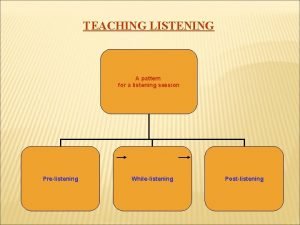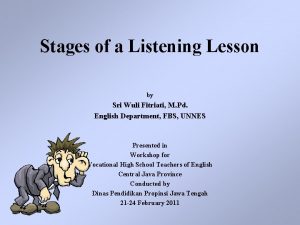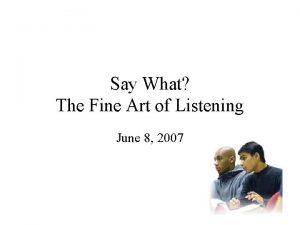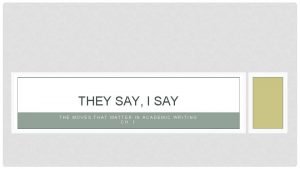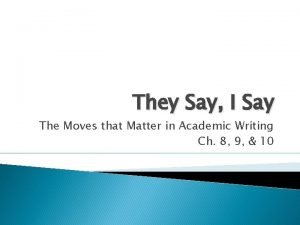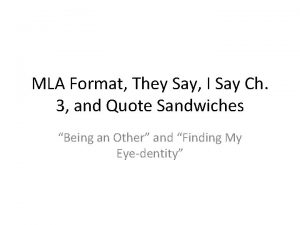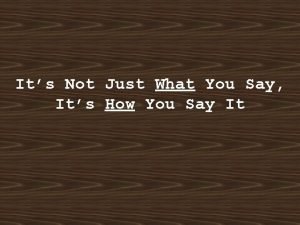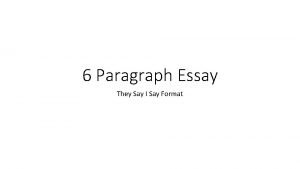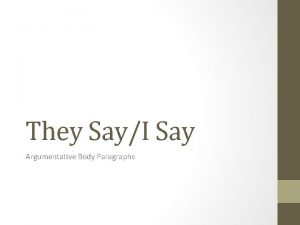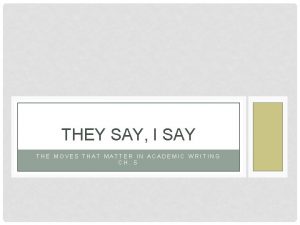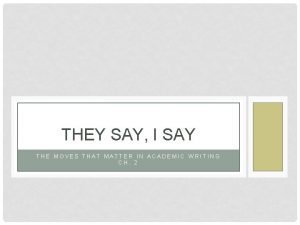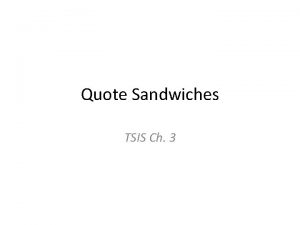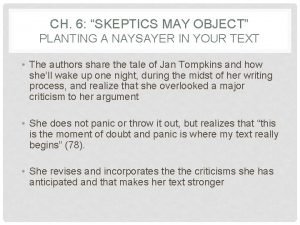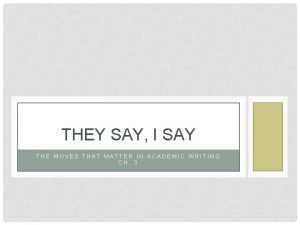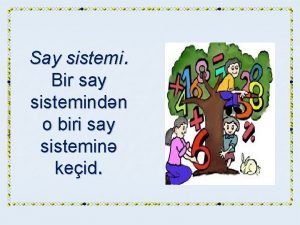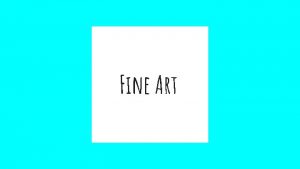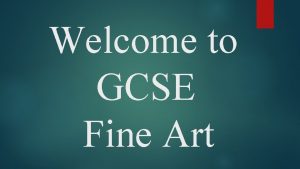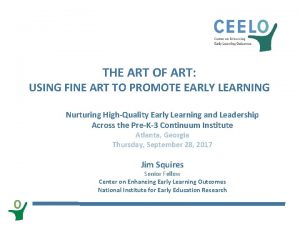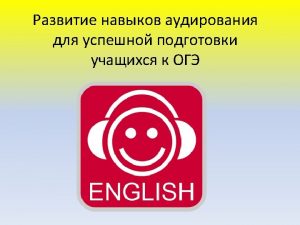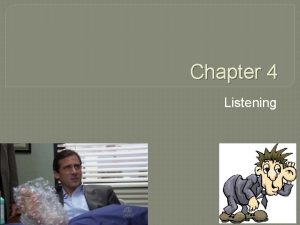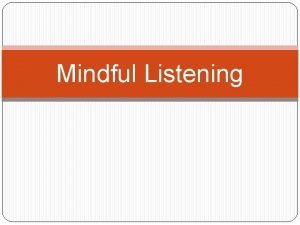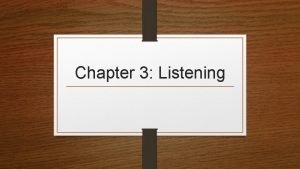Say What The Fine Art of Listening June

















- Slides: 17

Say What? The Fine Art of Listening June 8, 2007

Today’s Agenda • • Key Words Pre-Quiz The Fine Art of Listening Project!

Key Words • Listening 1. To make an effort to hear something: listen to the radio; listening for the bell. 2. To pay attention; heed: "She encouraged me to listen carefully to what country people called mother wit" (Maya Angelou).

• Distracter A person or thing that distracts the attention.

• Synthetic Not real or genuine; artificial; a synthetic chuckle at a poor joke.

• People-oriented listener Those who are people-oriented show a strong concern for others and their feelings. They are external in focus, getting their energy from others and find much meaning in relationships, talking about 'we' more than 'you' or 'they'.

• Content-oriented listener People who are content-oriented are interested more in what is said rather than who is saying it or what they are feeling. They assess people more by how credible they are and will seek to test expertise and truthfulness.

• Action-oriented listener Action-Oriented listeners focus on are interested first on what will be done, what actions will happen, when and who will do them. They seek 'so what' answers in their questions and look for plans of action. They like clear, crisp descriptions and answers that are grounded in concrete reality. They like structure, bullet-points and numbered action items.

• Time-oriented listener People who are time-oriented have their eyes constantly on the clock. They organize their day into neat compartments and will allocate time for listening, though will be very concerned if such sessions over-run.

What type of a listener are you? – People-oriented – Content-oriented – Action-oriented – Time-oriented

Listen More Talk Less Quiz • Listening effectively means all you have to do is hear what the other person is saying. True False

• List two ways that you can demonstrate you are listening to another person: a. _________________ b. _________________

• List two examples of poor listening skills: a. _________________ b. _______________

• A good listener listens with body language as much as with his/her ears. True False

• The reason why we have two ears and one mouth is a reminder that we should listen more than we talk. True False

Video Vignette: Say What? The Fine Art of Listening. Wait! Come back the movie just started.

Are you a good listener or a bad listener? 1. Using the Internet research the following: • Different styles of Listening • Bad listening habits • Good listening habits • Why people do not listen? (list reasons) • Why people should listen? (list reasons) 2. Create a Power. Point presentation explaining your findings from above. 3. Save your work to a disk and turn in your disk for credit. (If you need a disk come and get one!)
 Pre while post listening activities
Pre while post listening activities While listening stage
While listening stage Listening is a fine art
Listening is a fine art Active vs passive listening
Active vs passive listening Critical listening
Critical listening They say i say counter argument templates
They say i say counter argument templates They say/i say templates pdf
They say/i say templates pdf They say i say essay
They say i say essay Quotation sandwich they say i say
Quotation sandwich they say i say It's not what you say it's how you say it
It's not what you say it's how you say it They say i say format
They say i say format They say i say paragraph examples
They say i say paragraph examples Voice markers they say i say
Voice markers they say i say Don't blame the eater summary
Don't blame the eater summary What is a quotation sandwich they say i say
What is a quotation sandwich they say i say Naysayer in writing
Naysayer in writing Templates for explaining quotations
Templates for explaining quotations Say sistemləri
Say sistemləri
